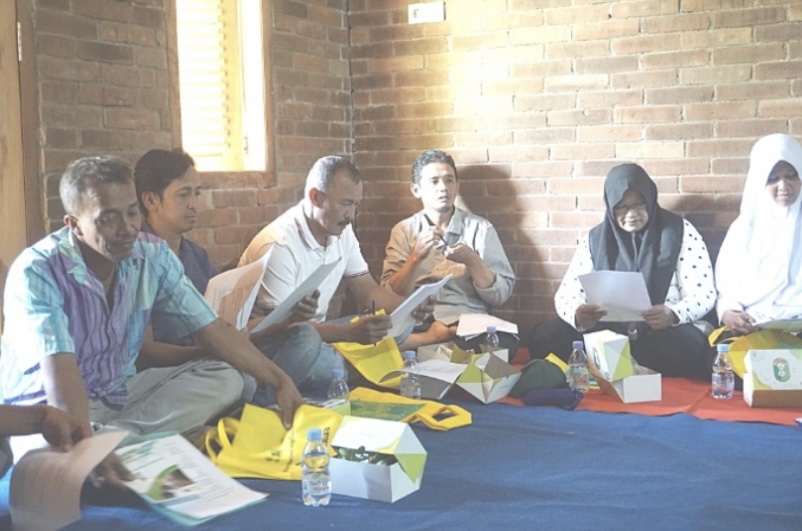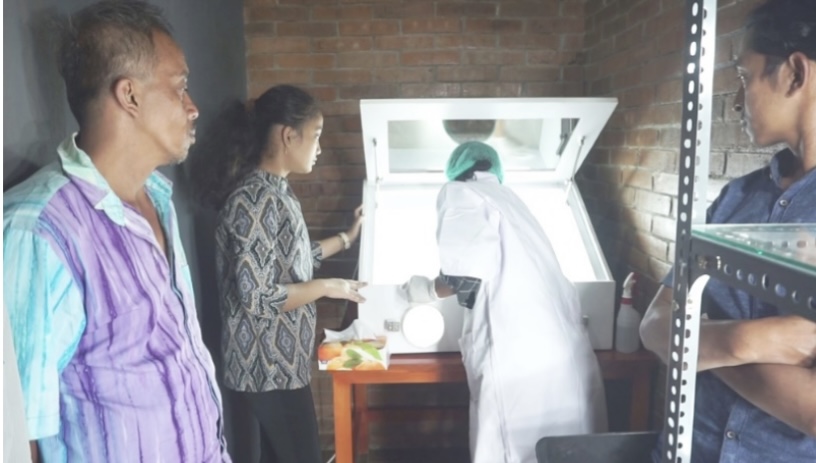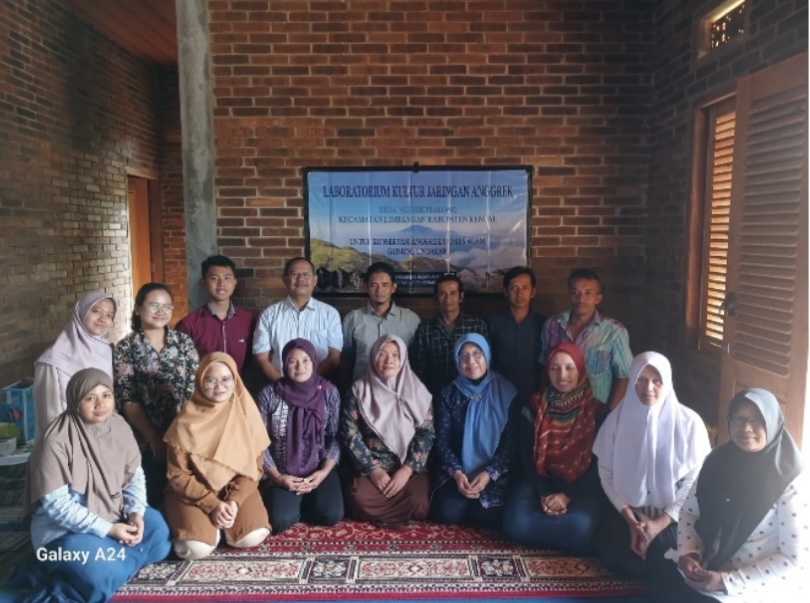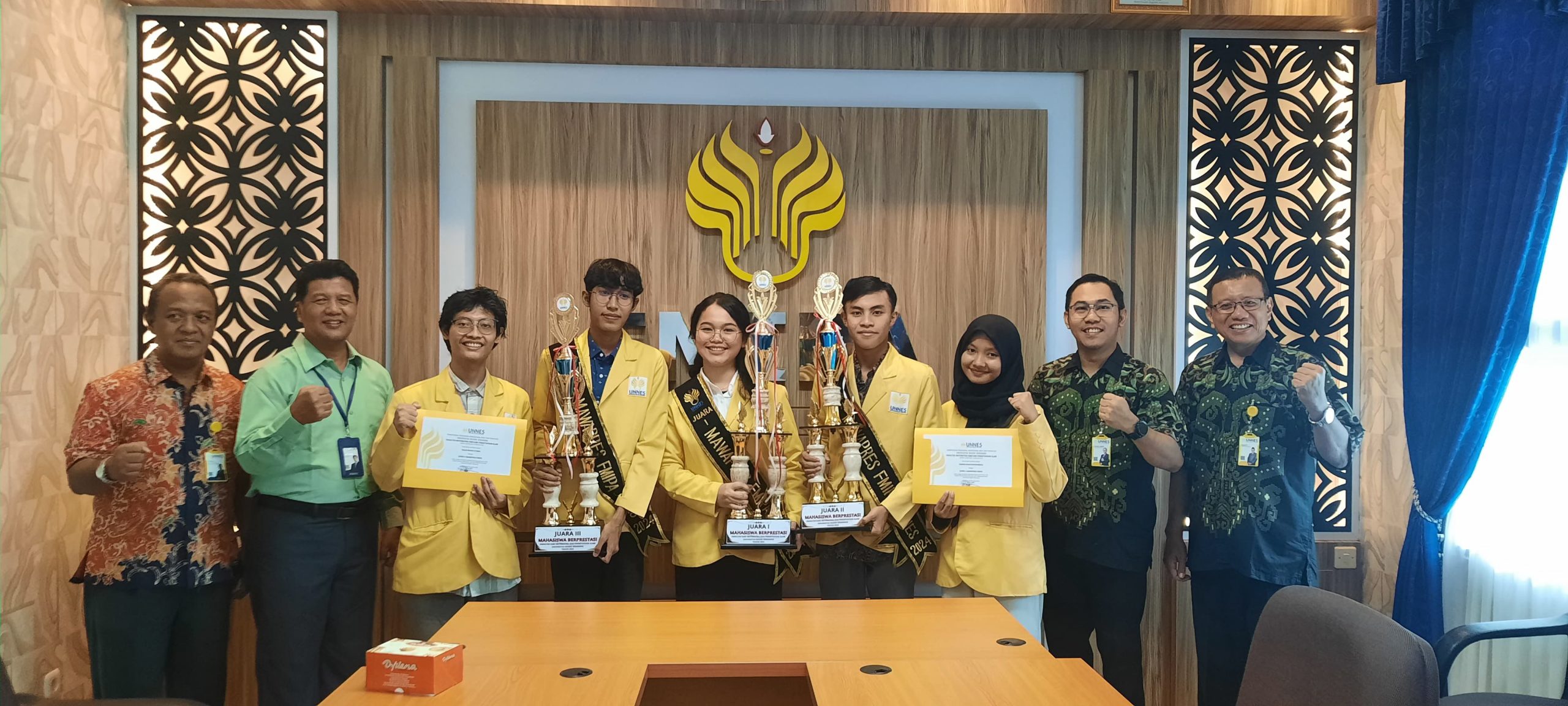The community of Ngesrepbalong Village, Limbangan Subdistrict, Kendal Regency, has been engaged in the conservation of rare orchids from Mount Ungaran. This activity involves the establishment of an Orchid House where 26 species of rare orchids are maintained. These orchid species hold high value in terms of both the economy and biodiversity. In 2022, nine of these orchid species being maintained died, and they could not be propagated. Therefore, efforts are needed to propagate other orchid species to prevent their extinction.
Orchid propagation can be efficiently carried out using seeds through tissue culture. Tissue culture technology involves growing specific plant parts in a sterile environment to obtain healthy new plants. Therefore, tissue culture must be conducted in a closed laboratory with equipment that ensures sterility. However, tissue culture laboratories do not always require sophisticated and expensive equipment, as they can be established on a small scale.
This has prompted the Community Service Team from Universitas Negeri Semarang (UNNES) to develop a simple-scale orchid tissue culture laboratory (KJA) in Ngesrepbalong Village. This initiative was launched on August 19, 2023, led by the team’s chairman, Prof. Dr. Enni Suwarsi Rahayu, M.Si., with the hope that this laboratory would function to support orchid conservation activities in Ngesrepbalong Village.
The community service activity was conducted in three stages. Firstly, there was an explanation about the characteristics and benefits of the KJA laboratory by team member Dr. Y. Ulung Anggraito, M.Si. Secondly, there was training on KJA laboratory management techniques guided by Aida Raesa Amalia, S.Si. The third stage involved the development of the simple-scale KJA laboratory, coordinated by Dr. Rini Kusumawardani, S.T., M.T., M.Sc., Sriyadi, S.Pd, and students from the Biology Program at FMIPA UNNES. The activities were carried out at the home of the social institution coordinator, Omah Sawah, Mr. Simon, in Gempol Hamlet, Ngesrepbalong Village. The training was attended by 10 environmental conservation activists from the local village.

The simple-scale KJA laboratory was developed from a 3 m x 3 m room, which was divided into two sections. The first part was used as a preparation room, while the second part served as a sterile space for planting and incubating or maintaining cultures. There were 21 pieces of equipment and materials donated to complete this simple-scale laboratory, including containers for planting cultures, culture racks for storing culture bottles, pressure cookers for sterilization, media cooking tools, planting tools, culture bottles, pH indicators, thermohygrometers, alcohol, and media materials. The training and development of the KJA laboratory were facilitated by funding from the Implementation Budget Document (DPA) of UNNES, DPA Number 023.17.2.690645/2023.10 REV 2.

Training and laboratory development activities were inaugurated by the head of Ngesrepbalong Village, Mr. Riyono. In his speech, the village head welcomed the KJA laboratory, highlighting its role not only in preserving native orchids from Mount Ungaran but also in propagating other plants that are in high demand and can be sold. This supports the development of tourism initiatives in Ngesrepbalong Village.
The coordinator of Omah Sawah also expressed appreciation, saying, “I am delighted because this is one of my dreams and the dreams of my friends. For laypeople, a laboratory is usually associated with expensive equipment owned by specialized institutions, but it turns out that a laboratory can be created simply and is not as difficult as imagined.” He hopes that this initiative will continue, allowing the community to propagate other plant commodities such as horticultural plants like potatoes, bananas, and more. Regarding orchids, the presence of the KJA laboratory can help save orchid species from Mount Ungaran from extinction.
The training participants were very enthusiastic about participating in this activity. They stated that the KJA technique was new to them and expressed pride in acquiring the skill of propagating orchid seeds, which they find highly beneficial. They also pledged to use the KJA laboratory to support the conservation of rare orchids. Moreover, they believe that the KJA laboratory will complement the educational and eco-tourism programs being developed in Ngesrepbalong Village.





